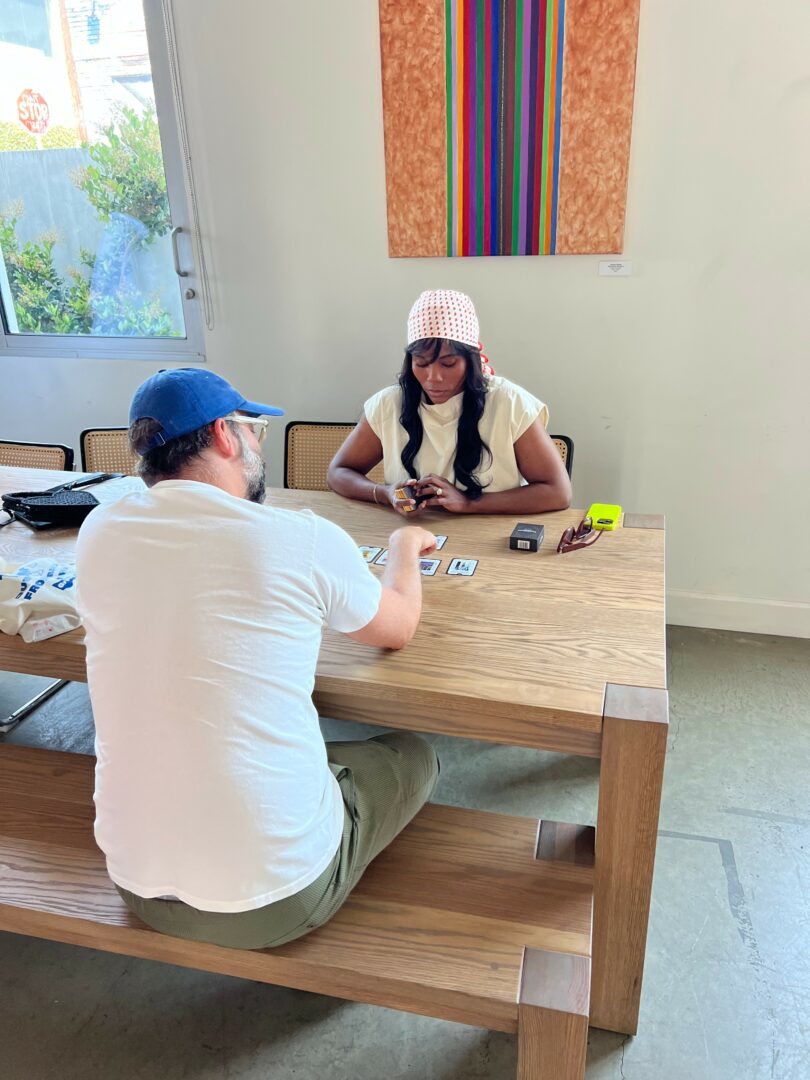We caught up with the brilliant and insightful Sarissa Thrower a few weeks ago and have shared our conversation below.
Hi Sarissa, so excited to talk about all sorts of important topics with you today. The first one we want to jump into is about being the only one in the room – for some that’s being the only person of color or the only non-native English speaker or the only non-MBA, etc Can you talk to us about how you have managed to be successful even when you were the only one in the room that looked like you?
I think it’s really important that we re-frame the language and mindset that we use to think about these things when we’re in these scenarios. People who occupy marginalized identities, like me, have long been socialized to see themselves as the odd ones out; these ideas are reinforced when we find ourselves in environments where we don’t appear to have representation. But being around people who look like you and thinking that is where your commonality primarily lies is a bit of a dead end.
Being the sole representation in a space can be a massive leg up for the individual, for a couple reasons: 1) it’s very unlikely that this is the first time they’ve found themselves in this position and because of that 2) it’s very likely that the individual possesses an approach and a perspective that literally no one else in the room could possibly have because they have never found themselves in a scenario where they were the only ones like them. This is a secret weapon, because you have to consider that other people may not yet have noticed that you are the only one like you in their space.
In the same way that standing out does sometimes make you a target (which is how I think most people typically see scenarios like this — and they’re right!), it also gives you a built-in platform to be memorable, impactful, and to shift perspectives in ways that might not happen otherwise. It’s a chance to use that spotlight to your advantage, to influence the room, and to redefine the narrative on your terms, to the further possible extent — and to create headway for others like you to inhabit the space in their own way, in the future.

Thanks for sharing that. So, before we get any further into our conversation, can you tell our readers a bit about yourself and what you’re working on?
I’m a PR professional turned fractional communications and business development strategist with over 20 years of experience. These days, I specialize in helping businesses and individuals navigate their business and communications approach with a mix of strategic acumen and intuitive insight.
What excites me most about what I do is the alchemy of it: combining my traditional PR background expertise with more creative, intuitive practices to solve modern challenges. I’ve also recently launched a new business called The Sixth House, where I’m offering fractional communications strategy alongside intuitive coaching services. It’s a bit unconventional, but I’ve found that combining intuition and discipline unlocks something special for my clients and allows me to approach each project with precision and creativity.
Whether it’s developing a crisis playbook, sharpening a brand’s business development and messaging strategy, or coaching leaders to own the room during interviews, my work is focused on empowering clients to show up authentically and strategically in every scenario. Some of my most recent projects include crafting business development and media strategies for innovative startups, building crisis comms frameworks for businesses navigating high-stakes scenarios, and teaching and hosting workshops.
And always, the ultimate goal is to create spaces where people feel both challenged and supported as they unlock their next level. For those who are curious: you can follow along on my Instagram (@sarissasays) and reach out to me if you’re interested in collaborating; I’m also on LinkedIn at https://www.linkedin.com/in/sarissathrower. If you’re looking for dry wit, a solid strategy, and a bit of insight to help you pivot — I’m your person.
Looking back, what do you think were the three qualities, skills, or areas of knowledge that were most impactful in your journey? What advice do you have for folks who are early in their journey in terms of how they can best develop or improve on these?
Looking back, the three qualities stand out as being the most impactful in my journey: adaptability, intentional effort, and a willingness to keep learning.
It’s such a cliche, but a willingness to learn and be open truly is the foundation for recognizing and acting on opportunities—and pairing that with a reasonable tolerance for risk can make all the difference. But if I could go back and give myself one piece of advice, it would be to worry less and show up more. People underestimate the power of simply being present, consistent, and curious.
Opportunities often come not because you have it all figured out, but because you’re in the room, ready to contribute and learn. Whether it’s volunteering for a project you’re not 100% sure you’re ready for, reaching out to someone whose work you admire, or even just saying “yes” when the easier option is “no,” showing up and being seen matters more than you may think.
For anyone early in their journey, my advice would be to trust that you don’t need to have all the answers right away. Focus on building relationships, practicing your craft, and being open to feedback. And remember, it’s better to take imperfect action than to wait for the “perfect” moment—it rarely comes.
Any advice for folks feeling overwhelmed?
When I feel overwhelmed, my first step is to pause and assess what’s truly important. Overwhelm often comes from trying to do too many things at once, so I focus on identifying what’s urgent versus what can wait (and to be honest: the source from which the pressure is being applied — we sometimes become our own worst enemies in these situations!). This simple prioritization helps cut through the noise.
I also lean heavily on routines. When everything feels chaotic, small, consistent rituals—like starting my day with a clear to-do list or stepping away for a 10-minute walk — can make a huge difference. Sometimes, it’s not about doing less but about finding structure in the madness.
Another thing that helps is reframing overwhelm as a signal that I might need help or a different perspective. Whether it’s delegating, brainstorming with a colleague, or even just venting to someone I trust, acknowledging that I don’t have to figure it out alone is liberating.
Contact Info:
- Website: https://suitenumbernine.co
- Instagram: sarissasays
- Linkedin: https://www.linkedin.com/in/sarissathrower
Image Credits
Photographer Credit: Ashley Randall Photography
so if you or someone you know deserves recognition please let us know here.




